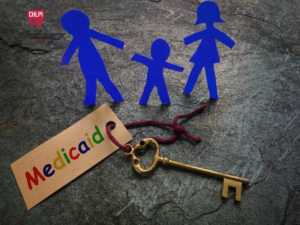By: Alex Leone (J.D. ’16), President, The Harvard Food Law Society
 One hundred law students from 50 law schools across the country joined together at Harvard Law School this past weekend for the Food Law Student Leadership Summit—the first of its kind and, extending over three days, remarkable for its scale. The Harvard Food Law and Policy Clinic, with the help of a group of student volunteers from different law schools, carefully combed through an overwhelming number of applications in order to craft a class of 100 law students for the Summit. Each of the students in this class has demonstrated an impressive interest in, and passion for, food law and policy, as well as leadership and capacity for positive change in our food system.
One hundred law students from 50 law schools across the country joined together at Harvard Law School this past weekend for the Food Law Student Leadership Summit—the first of its kind and, extending over three days, remarkable for its scale. The Harvard Food Law and Policy Clinic, with the help of a group of student volunteers from different law schools, carefully combed through an overwhelming number of applications in order to craft a class of 100 law students for the Summit. Each of the students in this class has demonstrated an impressive interest in, and passion for, food law and policy, as well as leadership and capacity for positive change in our food system.
The Summit began Friday afternoon with tours of local food organizations, including the Daily Table, CommonWealth Kitchen, the Food Project, and Community Servings. Students then came together for a reception and dinner at the Law School, with opening remarks by several speakers including Dean Martha Minow, who eloquently expressed the importance of food policy: It is connected to every other domain of human concern and we all will always need to eat food. Dean Minow and Assistant Professor Emily Broad Leib also made remarks about programs and initiatives at Harvard Law that demonstrate its role as a trailblazer in the cutting edge field of food law and policy—a field that was once so small, Professor Peter Barton Hutt later commented, its members couldn’t fill a dinner table. Alexandra Jordan, President of the Harvard Food Law Society (HFLS) during the 2014–2015 academic year, and I (current HFLS President) discussed successes we’ve had developing this student organization, including our “Just Food?” Conference hosted last spring which brought together over 400 attendees and 50 speakers to discuss and debate issues of food justice.
 Throughout Saturday, Summit attendees were divided into four sections and learned from distinguished professors in topical seminars. For example, Harvard Clinical Professor Robert Greenwald led a seminar on food as medicine, Drake Law Professor Neil Hamilton led a seminar on the Farm Bill, and Ona Balkus, a Senior Clinical Fellow in the Food Law and Policy Clinic, led a lively seminar on the controversial USDA Dietary Guidelines. On Saturday afternoon, students learned from a panel of five accomplished food law attorneys—ranging from organizations as diverse as LAF Chicago to Center for Science in the Public interest— about their careers and advice on entering this field of law. On Sunday afternoon, another panel presentation focused on student leaders, highlighting the work of several successful student food law societies through the voices of the students who lead them.
Throughout Saturday, Summit attendees were divided into four sections and learned from distinguished professors in topical seminars. For example, Harvard Clinical Professor Robert Greenwald led a seminar on food as medicine, Drake Law Professor Neil Hamilton led a seminar on the Farm Bill, and Ona Balkus, a Senior Clinical Fellow in the Food Law and Policy Clinic, led a lively seminar on the controversial USDA Dietary Guidelines. On Saturday afternoon, students learned from a panel of five accomplished food law attorneys—ranging from organizations as diverse as LAF Chicago to Center for Science in the Public interest— about their careers and advice on entering this field of law. On Sunday afternoon, another panel presentation focused on student leaders, highlighting the work of several successful student food law societies through the voices of the students who lead them.
A thought echoed several times throughout the course of the conference: The most marginalized and often-minority voices are essential to the food policy dialogue, yet unfortunately they are frequently missing. In remarks I made on Friday evening, I mentioned a connection I have made with the Alianza Nacional de Campesinas and the Food Law Society’s initiative to include the voices of female farm workers in several events we will host throughout the year—a step in the right direction but a world away from complete resolution of the problem.
Between the topical seminars and panel presentations, students took part in a policy simulation in which they assumed different roles—such as representatives from the American Medical Association or the Sierra Club—and considered hypothetical scenarios that mirrored actual problems facing policymakers today. The students devised and later presented policy proposals that attempted to resolve many of the tensions that animate food policy discourse: political paternalism and consumer autonomy; economic expediency and environmental protection; and corporate speech and the public interest, for example.
Saturday’s keynote was delivered over another impressive, sustainably sourced meal, but it was at times difficult to eat. Michelle Merkel, co-director of the legal arm of Food and Water Watch, discussed concentrated animal feeding operations. Listeners could not help but react with disgust as they learned the facts about Concentrated Animal Feeding Operations, or “CAFOs:” Animals in CAFOs lead tortured lives confined in cramped, filthy conditions made livable only through chemicals and pharmaceuticals. The toxic waste generated by CAFOs can fill the Empire State Building daily, Ms. Merkel reported, and it adversely impacts workers and community members anywhere within its noxious proximity. Ms. Merkel clarified some of the tensions between the interests of companies that draw colossal profits from CAFOs and the public interest. For example, several companies have successfully sought to make publication of photos or videos of the conditions at CAFOs illegal, while a poultry company successfully pressured a law school to discontinue a clinic that was prevailing in litigation against the company.

Ms. Merkel left attendees to ponder with a particularly prescient quote from President Grover Cleveland’s 1888 State of the Union Address: “Corporations, which should be the carefully restrained creatures of the law and the servants of the people, are fast becoming the people’s masters.” Attendees at the Summit expressed a genuine desire to shape our food system for the better, so it can justly reflect the interests of all eaters—not merely some—and of the Earth which feeds them.
To stay up to date on FLPC’s work on creating a national food law student network and our other projects, follow us on Facebook and twitter.
————–
The views reflected in this blog are those of the individual authors and do not necessarily represent those of the Center for Health Law & Policy Innovation or Harvard Law School. This blog is solely informational in nature, and not intended as a substitute for competent legal advice from a licensed and retained attorney in your state or country.


